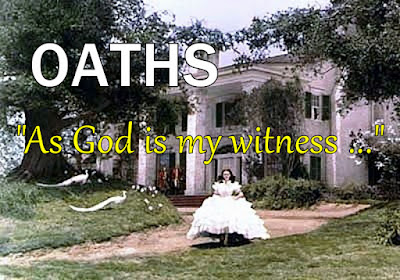DO YOU HEAR VOICES?
Acts 2:42-47
There are some things I just can't do without hearing my mother's voice as I remember those teaching moments my younger sister and I shared as we watched her prepare meals. She would talk as she worked, explaining everything she was doing. When it came to preparing liver (and she did make the best liver and onions), she always told us to scald the liver with hot water. Years later, as an adult, when I noticed this step wasn't mentioned in any of my cookbooks, I asked her why she scalded the pieces of liver. She replied, "Because that's how your grandmother did it."
I wonder now how many generations back this practice goes, and how many mothers taught their daughter to, first, scald the liver.
Do you hear those voices of instructions, guidance and wisdom, too? Does someone whisper to you in your mind's ear, something like, "measure twice, cut once?" Or "always use a wooden spoon when you're making bread?"
The community of faith that's described in chapter two of the book of Acts is the embodiment of the Gospel lessons Jesus had commissioned his disciples to carry the gospel out into the world. Jesus sent the Apostles out on their mission (apostles means "those who are sent out") with these instructions that we find in Matthew 28:20, "teach them to obey everything I have commanded you."
The early community of believers by listening to the teachings of the Apostles and through the work of the Holy Spirit formed themselves in the image of Christ's life and teachings.
Think about how much story telling and teaching was part of Jesus' ministry along with signs and wonders. Remember all the times Jesus sat down together with the disciples and other people for a meal. One meal, the early community of faith partook of on a regular basis, just as we still do, today, was the Lord's Supper. Each time they met, they broke bread together in remembrance of Christ's sacrifice for all human kind.
The Gospel writers recall Christ's own practice of prayer and the self-giving love Jesus lived out in his own life, death and resurrection. These too were also part of the life of the first faith communities.
All these things found in the practices of the early church have been passed down from generation to generation, carefully taught through the Traditions of the church. That's Tradition with a capital "T", that enduring collective wisdom and beliefs, informed by Scripture and enlivened by the Holy Spirit. Tradition, with a capital "T" brings the living Gospel to each generation, sometimes in new ways that bring the faith to life for each new generation of believers.
Capital "T" Tradition would not exist if Jesus hadn't mentored his disciples and then relased them to go and carry on his ministry. Even though he knew their faults and knew they would make mistakes, he still authorized them to do so and empowered them by the Holy Spirit.
Capital "T" Tradition would not be available to us to teach and guide us if the Apostles in turn didn't authorize others to take on specific ministries, like organizing the care of widows and orphans in the church. Or if the church itself hadn't sent out, with their prayers and their blessing. missionaries like Paul and Silas, who then taught and mentored and authorized new Christians to go and do.
Reproduction in a healthy and living church takes place not only through bringing new people to faith, but also in giving them the permission and support they need to take part in ministry or to become leaders of the church.
This is accomplished through teaching and mentoring and, with wisdom and discernment, releasing others to serve. It is giving them the space and encouragement to find their own voices and ways of doing ministry even though it may be different from the "way it's always been done."
Do we hear the voices of those who have gone before us in the faith? Do they mentor and guide us? Do they carry words of wisdom and encouragement? Do we add voices that welcome and include others in ministry and in the life of the church?
There are some things I just can't do without hearing my mother's voice as I remember those teaching moments my younger sister and I shared as we watched her prepare meals. She would talk as she worked, explaining everything she was doing. When it came to preparing liver (and she did make the best liver and onions), she always told us to scald the liver with hot water. Years later, as an adult, when I noticed this step wasn't mentioned in any of my cookbooks, I asked her why she scalded the pieces of liver. She replied, "Because that's how your grandmother did it."
I wonder now how many generations back this practice goes, and how many mothers taught their daughter to, first, scald the liver.
Do you hear those voices of instructions, guidance and wisdom, too? Does someone whisper to you in your mind's ear, something like, "measure twice, cut once?" Or "always use a wooden spoon when you're making bread?"
The community of faith that's described in chapter two of the book of Acts is the embodiment of the Gospel lessons Jesus had commissioned his disciples to carry the gospel out into the world. Jesus sent the Apostles out on their mission (apostles means "those who are sent out") with these instructions that we find in Matthew 28:20, "teach them to obey everything I have commanded you."
The early community of believers by listening to the teachings of the Apostles and through the work of the Holy Spirit formed themselves in the image of Christ's life and teachings.
Think about how much story telling and teaching was part of Jesus' ministry along with signs and wonders. Remember all the times Jesus sat down together with the disciples and other people for a meal. One meal, the early community of faith partook of on a regular basis, just as we still do, today, was the Lord's Supper. Each time they met, they broke bread together in remembrance of Christ's sacrifice for all human kind.
The Gospel writers recall Christ's own practice of prayer and the self-giving love Jesus lived out in his own life, death and resurrection. These too were also part of the life of the first faith communities.
All these things found in the practices of the early church have been passed down from generation to generation, carefully taught through the Traditions of the church. That's Tradition with a capital "T", that enduring collective wisdom and beliefs, informed by Scripture and enlivened by the Holy Spirit. Tradition, with a capital "T" brings the living Gospel to each generation, sometimes in new ways that bring the faith to life for each new generation of believers.
Capital "T" Tradition would not exist if Jesus hadn't mentored his disciples and then relased them to go and carry on his ministry. Even though he knew their faults and knew they would make mistakes, he still authorized them to do so and empowered them by the Holy Spirit.
Capital "T" Tradition would not be available to us to teach and guide us if the Apostles in turn didn't authorize others to take on specific ministries, like organizing the care of widows and orphans in the church. Or if the church itself hadn't sent out, with their prayers and their blessing. missionaries like Paul and Silas, who then taught and mentored and authorized new Christians to go and do.
Reproduction in a healthy and living church takes place not only through bringing new people to faith, but also in giving them the permission and support they need to take part in ministry or to become leaders of the church.
This is accomplished through teaching and mentoring and, with wisdom and discernment, releasing others to serve. It is giving them the space and encouragement to find their own voices and ways of doing ministry even though it may be different from the "way it's always been done."
Do we hear the voices of those who have gone before us in the faith? Do they mentor and guide us? Do they carry words of wisdom and encouragement? Do we add voices that welcome and include others in ministry and in the life of the church?



Comments
Post a Comment